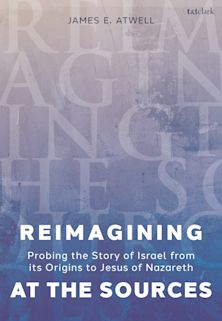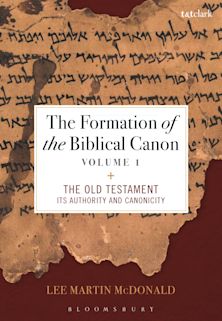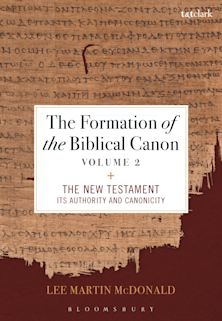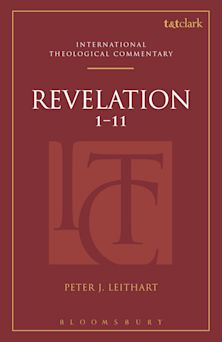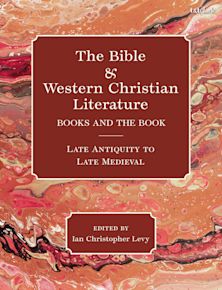- Home
- ACADEMIC
- Biblical Studies
- Biblical Interpretation
- The Massacre of the Innocents
The Massacre of the Innocents
Studies in the Cultural Afterlife of a Gospel Scene
The Massacre of the Innocents
Studies in the Cultural Afterlife of a Gospel Scene
You must sign in to add this item to your wishlist. Please sign in or create an account
Description
In The Massacre of the Innocents: Studies in the Cultural Afterlife of a Gospel Scene, Warren Carter examines some fifty instances of the interpretation of the Matthean “Massacre of the Innocents” (Matt 2:16-18). He emphasizes the agency of interpreters, who in their particular contexts and media, “think with” the shocking Matthean scene to address the often-tragic circumstances of their audiences. He argues throughout that the structure of the Gospel scene facilitates this “thinking with.” The scene is structured as a triad of power relations with a tyrant (Herod), victims (infants and parents), and violent means of tyranny (the massacre). Interpreters use this triad of power relations to identify tyrant/s, victims, and means of tyranny in their own situations. Carter illustrates the use of this triad of power relations across two millennia, in numerous socio-political contexts, and media as diverse as sermons, images, poems and hymns, dramas and festivals, films, novels, Christmas carols, and Children’s Bibles.
Table of Contents
Section 1 Earliest Interpretations
Chapter 2 Proto-Gospel of James
Chapter 3 Irenaeus
Chapter 4 Cyprian
Section 2 First Millennium Sermons
Chapter 5 Chrysostom: Sermon 9 (d.407)
Chapter 6 Chrysologus: Sermon 152 (d. 450)
Chapter 7 Quodvultdeus: Two Homilies on the Creed (430s CE)
Chapter 8 Leo, Bishop of Rome (d.461)
Chapter 9 Our Martyrs Are Better: A Fifth Century Anonymous Sermon
Chapter 10 Caesarius: Sermon 222, “On the Feast of the Holy Innocents” (d.542)
Chapter 11 Venerable Bede (d.735)
Chapter 12 Hildegard of Bingen (d.1179)
Section 3 Images
Chapter 13 Women at Chartres Cathedral (13th Century)
Chapter 14 Matteo di Giovanni (d.1495)
Chapter 15 Pieter Bruegel (d.1569)
Chapter 16 The Chapel of Lucrezia della Rovere (16th Century)
Chapter 17 The Book of Common Prayer, William Faithorne (1653)
Chapter 18 William Rimmer, Massacre of the Innocents (1858)
Chapter 19 Julia Chavarría, Massacre of the Innocents (1981)
Chapter 20 Bessie Harve
Product details
| Published | Jan 30 2023 |
|---|---|
| Format | Ebook (Epub & Mobi) |
| Edition | 1st |
| Extent | 414 |
| ISBN | 9781978714113 |
| Imprint | Fortress Academic |
| Publisher | Bloomsbury Publishing |
About the contributors
Reviews
-
Carter’s dive into the afterlives of Matthew’s Massacre of the Innocents is a game-changer for the field of reception history. His careful attention to the event of meaning-making, his willingness to name and call-out numerous contexts of oppression, and his ability to write clearly and effectively make this a superb text for theological education. From ancient manuscripts to modern headlines, from indigenous art to children’s bibles, Carter’s work not only examines the way people throughout history have “thought with” this text, it also beckons readers to reflect on the ways they too have “thought with” Matthew.
Anna M. V. Bowden, Louisville Presbyterian Theological Seminary
-
With typical thoroughness, Warren Carter has written on one of the most riveting episodes in Matthew’s Gospel: King Herod sending soldiers to massacre young children in Bethlehem. This scene, as evidenced by a wide range of examples, has attracted the attention of theologians, artists, poets, playwrights, and musicians for centuries – as people in varying times and places wrestle with the enduring dynamic of tyrant, victims, and acts of unjust violence that Matthew’s narrative portrays. Carter’s approach reframes the concept of reception history from a static view in which the Biblical text “acts” on an audience to one in which readers “think with” the scene from a variety of perspectives. This stance is welcome, insofar as it opens space for diverse readers to read, respond to, and engage the Gospel story in their own ways – including the possibility of continuing to use Matthew’s narrative to address injustice and acts of violence in the world as so many have before.
John Christianson, Morningside University
-
Warren Carter has provided us with an informative and provocative survey of diverse ways in which readers/viewers/hearers have interacted with three poignant verses in Matthew’s Gospel (2:16–18) that narrate Herod’s massacre of the innocents. All told, Carter helps us to “read with” Matthew in diverse circumstances regarding a text that remains unfortunately timely given the continued prevalence of massacres in our own particular contexts.
Interpretation: A Journal of Bible and Theology

ONLINE RESOURCES
Bloomsbury Collections
This book is available on Bloomsbury Collections where your library has access.
















